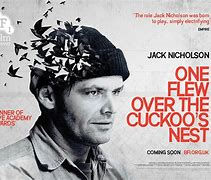One Flew Over the Cukoo's Nest
- Kathy Miller
- May 18, 2022
- 2 min read
Ken Kesey, 1962 Date Read: 5/18/22

This is the novel on which the classic Jack Nicholson movie is based. I love that movie, and I was excited to see how close it was to the original. The verdict: it is very well done. The film is a great adaptation and it is clear they tried to keep to the tone and feeling of the novel.
Here I should mention that not only do I have a history of mental illness, but I have a son with schizoaffective disorder and another with severe depression. My grandmother had serious mental illnesses, and they used electroshock on her. Much earlier in time, my great aunt (my mother's father's sister) was given electroshock as a teenager because she was a lesbian. (Sidenote: both of my kids are LGBTQIA and I myself am asexual and panromantic).
As myself and one of my sons are disabled, in addition to all that above, I really felt this novel in a way I haven't any of the others.
I forget sometimes that homosexuality was considered a mental illness, despite my great aunt's experiences (which obviously happened a long time before I came along). I do remember trying to tell my mom when I was about 16 (so the mid-1990s) that I thought I also liked girls and she was like, "No you don't" and walked away. I realized now, many many years later, that in her mind it was dangerous. That is also why I experienced a lot of rejection and push-back from some family members when my younger son began transitioning (he is FTM*). Many people today still believe the antiquated ideas of mental illness that are in Kesey's novel (which is 60 years old).
I don't know if Kesey suffered mental illness himself but he certainly understood it very well. And he understood that your self-worth does not hinge on your mental illness or disability status. The way you're treated by others, however, does impact your self-worth. And because you have a mental illness (or a physical disability, or both) some people see you as less than capable. You're slightly less than human. The way I am treated as a physically disabled woman is often different than the way I was treated before my disability. Because to many people's mind's I am not quite the same thing as a "woman". My illness(es) and disabilities take away from my personhood, in many eyes.
This demotion from full personhood is the main topic of this novel. McMurphy's character exists to bring the partial-humanity of the men in the ward to view, and to challenge them to regain their manhood. Chief literally sees himself "growing larger", and this is how McMurphy speaks of it to him.
This novel is a challenge to ableism.
Length: 311 pages (the novel; the entire book is 567 pages with commentaries and letters between the author and his friends. I only read the novel. This is Viking Critical Library copy from 1973).
ReReadability: probably
Classic: Definitely!
*We wrote a book about our experiences with his transition and his life as a transman. You can find it on Amazon via this link.

Comments